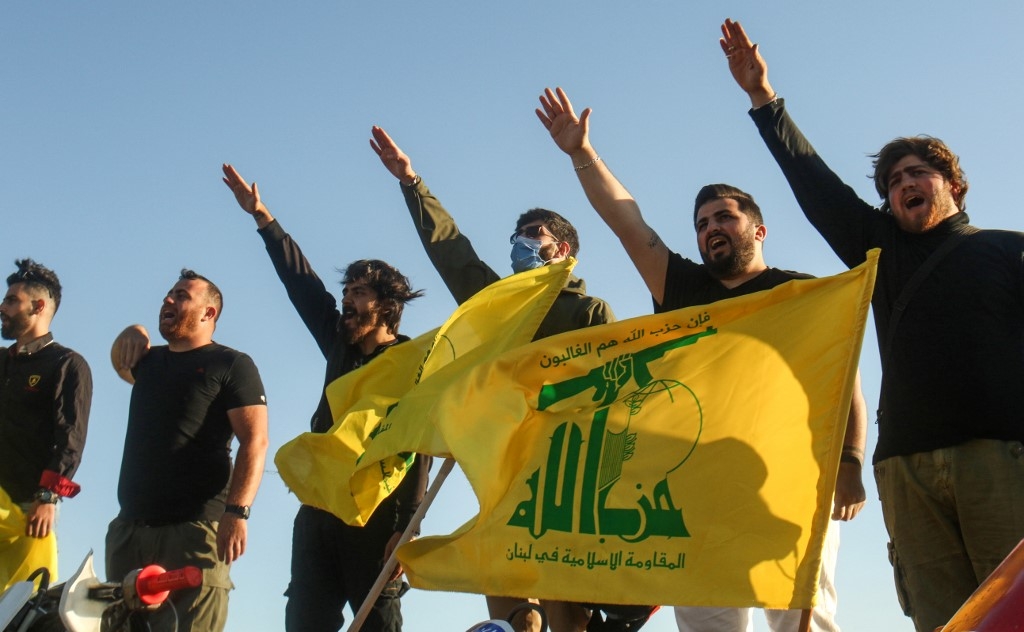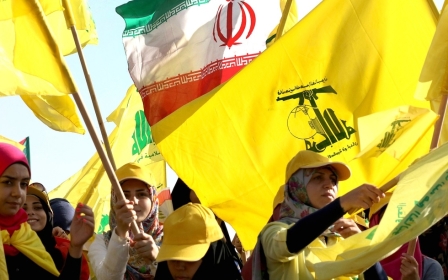US set to release convicted Hezbollah financier on 'compassionate' grounds

Against the wishes of the Trump administration, a Lebanese-Belgian businessman convicted of evading sanctions and financing Hezbollah is being prepared for early release, the US State Department told Middle East Eye.
Kassim Tajideen, 64, has officially been transferred from prison to Immigration and Customs Enforcement (ICE) custody "for purposes of removal from the United States", the State Department said in an email on Tuesday.
Tajideen was arrested in Morocco in 2017 and extradited to the US, where he pleaded guilty to evading sanctions and making illegal transactions worth nearly $1bn.
In August he was sentenced to five years in prison and ordered to pay a $50m fine, but last month a judge ordered Tajideen's "compassionate release" on medical grounds amid concerns over the spread of the coronavirus.
Prosecutors were given a 27 June deadline to appeal against the decision, but since the State Department has revealed that Tajideen has already been transferred to ICE custody, a last-minute motion to appeal seems unlikely.
New MEE newsletter: Jerusalem Dispatch
Sign up to get the latest insights and analysis on Israel-Palestine, alongside Turkey Unpacked and other MEE newsletters
Still, according to the State Department, the Trump administration does not approve of the court's decision to release Tajideen.
"The US government opposed Tajideen's motion for compassionate release but in the end, the court ruled in his favour," a spokesperson from the department told MEE.
"The fact that he is being released early due to health concerns and removed from the United States does not diminish the severity of his crime," the spokesperson said.
Despite his release, Tajideen remains blacklisted by the Department of the Treasury as a "specially designated global terrorist".
"Tajideen remains designated, his assets remain blocked, and US persons are still prohibited from engaging in any transactions with him," the spokesperson said.
According to a 11 June court filing, Tajideen has been scheduled to board a charter flight to Lebanon sometime in July.
The Moroccan, Lebanese and Belgian embassies in Washington DC did not respond to MEE's request for comment by the time of this article's publication.
No 'backroom deal'
The State Department denied reports linking Tajideen's release to Lebanon's decision to release Lebanese-American Amer Fakhoury, 57, earlier this year.
Fakhoury, known as "the Butcher of Khiam", had been held by Beirut since last September on charges of torturing detainees while working for an Israeli-backed Lebanese militia two decades ago. Fakhoury has admitted to being a warden at the infamous Khiam prison.
He had fled Lebanon after the Israeli army's withdrawal in 2000 and eventually settled in the United States, where he became a citizen.
Fakhoury's detention in Lebanon had caused an outcry in Washington, with a senator of his home state of New Hampshire leading the charge for his release.
A Lebanese military court said Fakhoury had been cleared of charges based on the notion that the crimes he is alleged to have committed fall outside the statute of limitations.
Following his release and repatriation to the US in March, President Donald Trump said that his administration had worked "very hard" to free Fakhoury, expressing his thanks to the Lebanese government.
Still, the State Department insisted that the two cases were unrelated.
"We have seen some inaccurate reports characterising this judicial action [of Tajideen's release] as 'goodwill diplomacy' or part of a 'backroom deal' [related to Fakhoury's release]," the State Department spokesperson said. "Those reports are false."
Tajideen's extradition
For his part, Tajideen was arrested by Moroccan authorities upon his arrival in Casablanca on 12 March 2017 at the request of the US government, which was granted extradition rights.
At the time, Tajideen's supporters accused Moroccan authorities of "kidnapping" the businessman because he was not facing any charges in the North African monarchy.
A commodities trader across the Middle East and Africa, Tajideen was slapped with a terror finance designation in May 2009, which carries sanctions that largely locked him out of global financial networks.
The designation identified him as an "important financial contributor" to Hezbollah.
Tajideen initially insisted on his innocence, before accepting a guilty plea on money laundering conspiracy charges.
Middle East Eye delivers independent and unrivalled coverage and analysis of the Middle East, North Africa and beyond. To learn more about republishing this content and the associated fees, please fill out this form. More about MEE can be found here.






